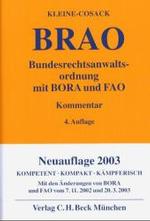- ホーム
- > 洋書
- > 英文書
- > Science / Mathematics
Full Description
This book explores the impact of circular economy ideas on waste management in manufacturing industries. It highlights the need for a shift from linear to circular models, reducing waste, recycling materials, and creating efficient goods. The book also discusses the use of technologies like blockchain, IoT, and artificial intelligence in improving recycling and garbage monitoring. It also highlights the financial benefits of implementing circular economy principles, including reduced production costs and environmental compliance.
It offers doable approaches to cost-cutting, technology adoption, and the application of circular economy principles in actual production settings. It also offers structures and procedures for integrating circular economy principles into business plans and coordinating corporate sustainability objectives with international sustainability goals and industry norms. It is a useful tool for researchers and academics, providing both theoretical and practical insights into models of the circular economy. Additionally, it offers case studies for fresh investment prospects in waste-reduction technology and entrepreneurs in the circular economy. The book offers a thorough manual to support the manufacturing sector's shift to a more sustainable, circular economy.
Contents
1. Introduction to Circular Economy and its Applications in the Manufacturing Process 2. Tech Driven Sustainability: Reshaping Waste Recycling 3. Artificial Intelligence in Waste Management: Optimizing Recycling, Cost Reduction, and Sustainability 4. AI-Driven Waste Minimization Model in Manufacturing 5. A Case Study on the Implementation of Circular Economy Principles in the Construction Industry. A Case Study on the Implementation of Circular Economy Principles in the Construction Industry 6. An Enhanced Imbalanced Garbage Classification Model Using Attention-based ResNet50 with Generative Adversarial Networks (GAN) 7. AI-Powered Waste Management: Advancing Sustainability and Circular Economy Through Intelligent Systems 8. Intelligent Systems in Waste Management: A Machine Learning Approach 9. Bridging Corporate Social Responsibility and Circular Economy in Manufacturing in Light of Economic, Technological, and Policy Barriers: Addressing Integration Challenges and Future Directions 10. Sustainable Urban Air Mobility: Challenges, Innovations, and Strategic Recommendations 11. Sustainable Supply Chain Management through Smart Technology 12. Role of Technology in Sustainable Logistics and Inventory Management with Reference to Food Corporation of India 13. Identifying Key Food Values Influencing Sustainable Purchase Intentions: An EFA-Based Market Segmentation Approach 14. Migrant Entrepreneurship: The Six-decade Long Journey of Venture Sustainability and Waste Reduction in India using Intellectual Capital and Firm Capability 15. Machine Learning Base Model for Waste Management






